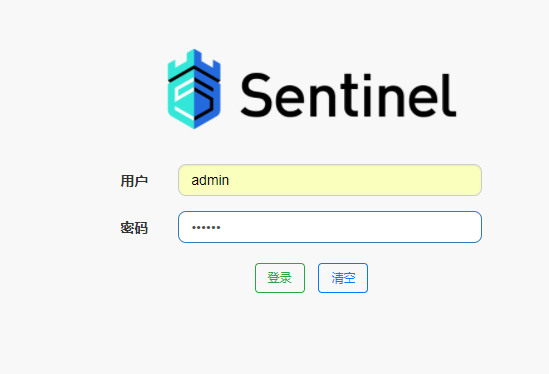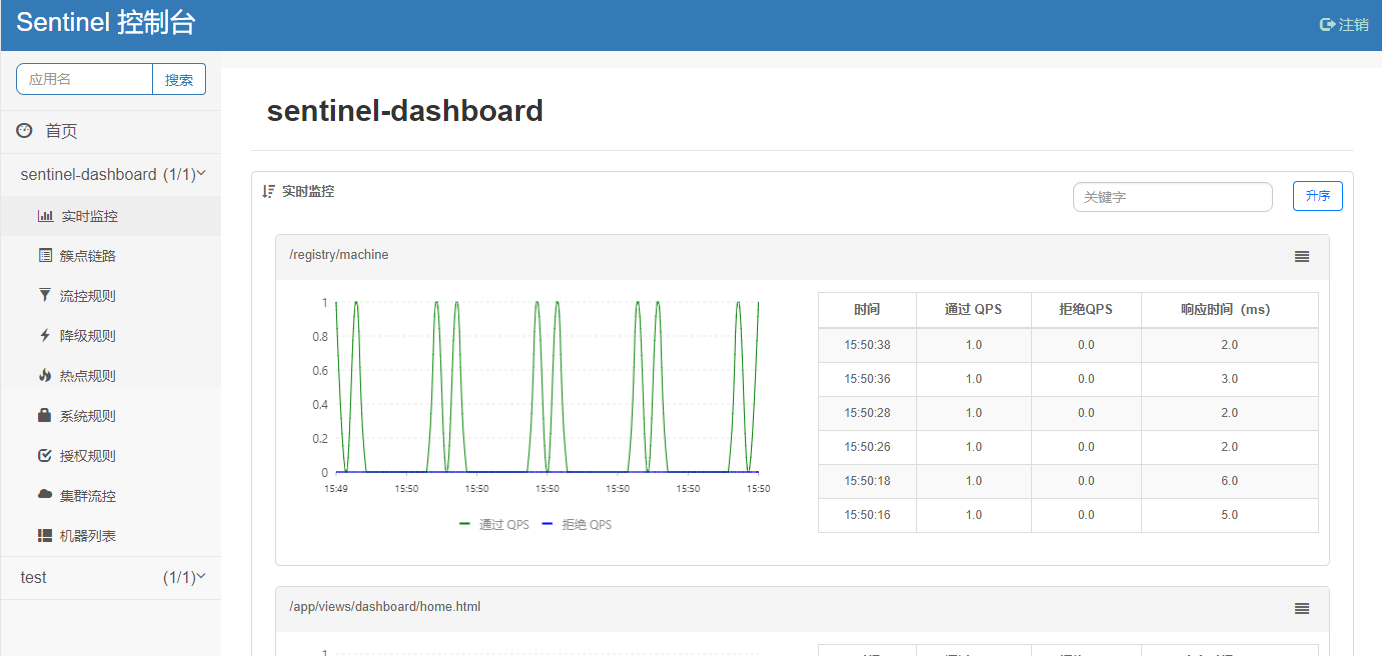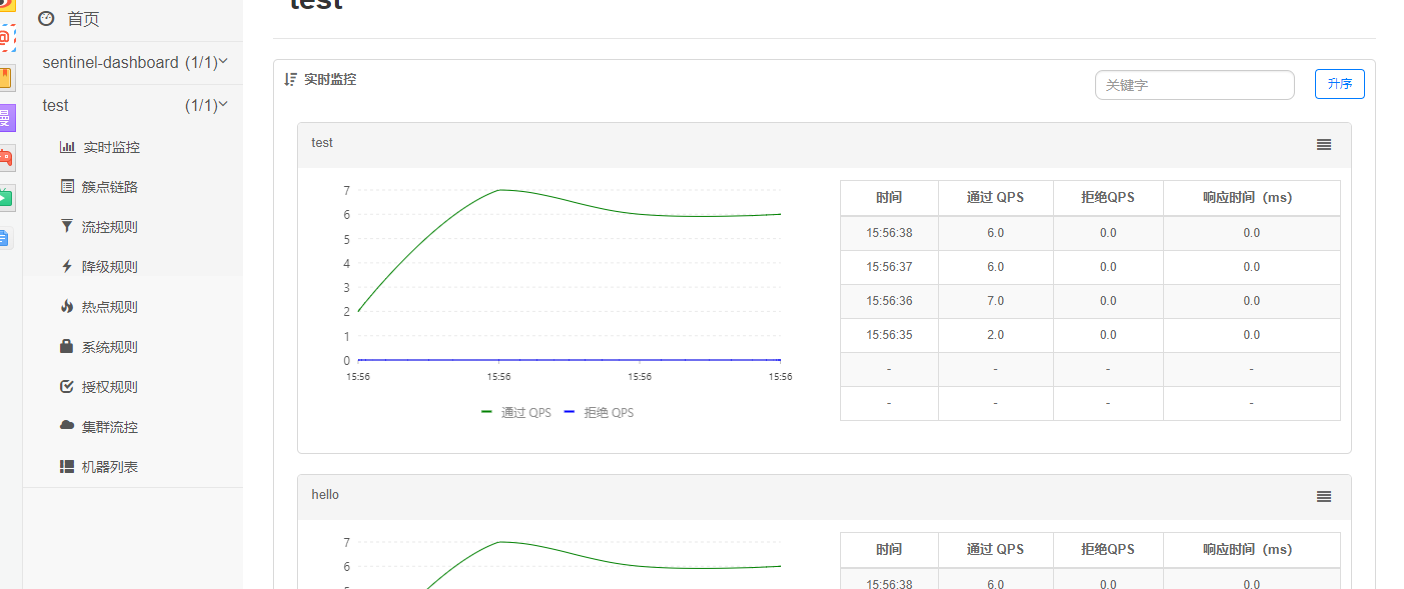жӮЁеҘҪпјҢзҷ»еҪ•еҗҺжүҚиғҪдёӢи®ўеҚ•е“ҰпјҒ
жӮЁеҘҪпјҢзҷ»еҪ•еҗҺжүҚиғҪдёӢи®ўеҚ•е“ҰпјҒ
йҳҝйҮҢе·ҙе·ҙејҖжәҗSentinelйҷҗжөҒж–№жЎҲжҗӯе»әжҳҜжҖҺж ·зҡ„пјҢеҫҲеӨҡж–°жүӢеҜ№жӯӨдёҚжҳҜеҫҲжё…жҘҡпјҢдёәдәҶеё®еҠ©еӨ§е®¶и§ЈеҶіиҝҷдёӘйҡҫйўҳпјҢдёӢйқўе°Ҹзј–е°ҶдёәеӨ§е®¶иҜҰз»Ҷи®Іи§ЈпјҢжңүиҝҷж–№йқўйңҖжұӮзҡ„дәәеҸҜд»ҘжқҘеӯҰд№ дёӢпјҢеёҢжңӣдҪ иғҪжңүжүҖ收иҺ·гҖӮ
SentinelжҳҜйҳҝйҮҢејҖжәҗзҡ„дёҖдёӘйҷҗжөҒж–№жЎҲжЎҶжһ¶е…·жңүд»ҘдёӢзү№еҫҒ:
дё°еҜҢзҡ„еә”з”ЁеңәжҷҜпјҡSentinel жүҝжҺҘдәҶйҳҝйҮҢе·ҙе·ҙиҝ‘ 10 е№ҙзҡ„еҸҢеҚҒдёҖеӨ§дҝғжөҒйҮҸзҡ„ж ёеҝғеңәжҷҜпјҢдҫӢеҰӮз§’жқҖпјҲеҚізӘҒеҸ‘жөҒйҮҸжҺ§еҲ¶еңЁзі»з»ҹе®№йҮҸеҸҜд»ҘжүҝеҸ—зҡ„иҢғеӣҙпјүгҖҒж¶ҲжҒҜеүҠеі°еЎ«и°·гҖҒйӣҶзҫӨжөҒйҮҸжҺ§еҲ¶гҖҒе®һж—¶зҶ”ж–ӯдёӢжёёдёҚеҸҜз”Ёеә”з”ЁзӯүгҖӮ
е®ҢеӨҮзҡ„е®һж—¶зӣ‘жҺ§пјҡSentinel еҗҢж—¶жҸҗдҫӣе®һж—¶зҡ„зӣ‘жҺ§еҠҹиғҪгҖӮжӮЁеҸҜд»ҘеңЁжҺ§еҲ¶еҸ°дёӯзңӢеҲ°жҺҘе…Ҙеә”з”Ёзҡ„еҚ•еҸ°жңәеҷЁз§’зә§ж•°жҚ®пјҢз”ҡиҮі 500 еҸ°д»ҘдёӢ规模зҡ„йӣҶзҫӨзҡ„жұҮжҖ»иҝҗиЎҢжғ…еҶөгҖӮ
е№ҝжіӣзҡ„ејҖжәҗз”ҹжҖҒпјҡSentinel жҸҗдҫӣејҖз®ұеҚіз”Ёзҡ„дёҺе…¶е®ғејҖжәҗжЎҶжһ¶/еә“зҡ„ж•ҙеҗҲжЁЎеқ—пјҢдҫӢеҰӮдёҺ Spring CloudгҖҒDubboгҖҒgRPC зҡ„ж•ҙеҗҲгҖӮжӮЁеҸӘйңҖиҰҒеј•е…Ҙзӣёеә”зҡ„дҫқиө–并иҝӣиЎҢз®ҖеҚ•зҡ„й…ҚзҪ®еҚіеҸҜеҝ«йҖҹең°жҺҘе…Ҙ SentinelгҖӮ
е®Ңе–„зҡ„ SPI жү©еұ•зӮ№пјҡSentinel жҸҗдҫӣз®ҖеҚ•жҳ“з”ЁгҖҒе®Ңе–„зҡ„ SPI жү©еұ•жҺҘеҸЈгҖӮжӮЁеҸҜд»ҘйҖҡиҝҮе®һзҺ°жү©еұ•жҺҘеҸЈжқҘеҝ«йҖҹең°е®ҡеҲ¶йҖ»иҫ‘гҖӮдҫӢеҰӮе®ҡеҲ¶и§„еҲҷз®ЎзҗҶгҖҒйҖӮй…ҚеҠЁжҖҒж•°жҚ®жәҗзӯүгҖӮ
дёҖгҖҒжҗӯе»әзӣ‘жҺ§е№іеҸ°
1.дёӢиҪҪзӣёеә”зҡ„jarеҢ…пјҢең°еқҖhttps://github.com/alibaba/Sentinel/releases
2.еҗҜеҠЁ java -Dserver.port=8080 -Dcsp.sentinel.dashboard.server=localhost:8080 -Dproject.name=sentinel-dashboard -jar -Dsentinel.dashboard.auth.username=sentinel -Dsentinel.dashboard.auth.password=123456 sentinel-dashboard-1.6.3.jar
-Dsentinel.dashboard.auth.username жҢҮе®ҡзҷ»еҪ•еҗҚ
-Dsentinel.dashboard.auth.password жҢҮе®ҡзҷ»еҪ•еҜҶз Ғ
3.и®ҝй—®localhost:8080 пјҢиҫ“е…Ҙз”ЁжҲ·еҜҶз Ғ

4.зңӢеҲ°еҰӮдёӢж•Ҳжһңжҗӯе»әжҲҗеҠҹ

дәҢгҖҒе®ўжҲ·з«ҜдҪҝз”Ё
д»ҘжіЁи§ЈдҪҝз”ЁдёәдҫӢ
1.mavenдҫқиө–
<?xml version="1.0" encoding="UTF-8"?> <project xmlns="http://maven.apache.org/POM/4.0.0" xmlns:xsi="http://www.w3.org/2001/XMLSchema-instance" xsi:schemaLocation="http://maven.apache.org/POM/4.0.0 http://maven.apache.org/xsd/maven-4.0.0.xsd"> <modelVersion>4.0.0</modelVersion> <artifactId>sentinel-demo-annotation-spring-aop</artifactId> <parent> <groupId>org.springframework.boot</groupId> <artifactId>spring-boot-starter-parent</artifactId> <version>2.0.6.RELEASE</version> </parent> <dependencies> <dependency> <groupId>com.alibaba.csp</groupId> <artifactId>sentinel-core</artifactId> <version>1.6.3</version> </dependency> <dependency> <groupId>com.alibaba.csp</groupId> <artifactId>sentinel-transport-simple-http</artifactId> <version>1.6.3</version> </dependency> <dependency> <groupId>com.alibaba.csp</groupId> <artifactId>sentinel-annotation-aspectj</artifactId> <version>1.6.3</version> </dependency> <dependency> <groupId>org.springframework.boot</groupId> <artifactId>spring-boot-starter-aop</artifactId> </dependency> <dependency> <groupId>org.springframework.boot</groupId> <artifactId>spring-boot-starter-web</artifactId> </dependency> </dependencies> </project>
2.й…ҚзҪ®йҷҗжөҒ规еҲҷж–№жЎҲ
/*
* Copyright 1999-2018 Alibaba Group Holding Ltd.
*
* Licensed under the Apache License, Version 2.0 (the "License");
* you may not use this file except in compliance with the License.
* You may obtain a copy of the License at
*
* http://www.apache.org/licenses/LICENSE-2.0
*
* Unless required by applicable law or agreed to in writing, software
* distributed under the License is distributed on an "AS IS" BASIS,
* WITHOUT WARRANTIES OR CONDITIONS OF ANY KIND, either express or implied.
* See the License for the specific language governing permissions and
* limitations under the License.
*/
package com.alibaba.csp.sentinel.demo.annotation.aop.config;
import com.alibaba.csp.sentinel.annotation.aspectj.SentinelResourceAspect;
import com.alibaba.csp.sentinel.slots.block.RuleConstant;
import com.alibaba.csp.sentinel.slots.block.flow.FlowRule;
import com.alibaba.csp.sentinel.slots.block.flow.FlowRuleManager;
import java.util.ArrayList;
import java.util.List;
import org.springframework.context.annotation.Bean;
import org.springframework.context.annotation.Configuration;
/**
* @author Eric Zhao
*/
@Configuration
public class AopConfiguration {
@Bean
public SentinelResourceAspect sentinelResourceAspect() {
//й…ҚзҪ®еӣәе®ҡйҷҗжөҒ规еҲҷпјҢжҜҸз§’дёә20qps,зңҹеҜ№test
List<FlowRule> rules = new ArrayList<>();
FlowRule rule = new FlowRule();
rule.setResource("test");
rule.setGrade(RuleConstant.FLOW_GRADE_QPS);
// Set limit QPS to 20.
rule.setCount(20);
rules.add(rule);
FlowRuleManager.loadRules(rules);
return new SentinelResourceAspect();
}
}3.е®һйҷ…еә”з”Ё
/*
* Copyright 1999-2018 Alibaba Group Holding Ltd.
*
* Licensed under the Apache License, Version 2.0 (the "License");
* you may not use this file except in compliance with the License.
* You may obtain a copy of the License at
*
* http://www.apache.org/licenses/LICENSE-2.0
*
* Unless required by applicable law or agreed to in writing, software
* distributed under the License is distributed on an "AS IS" BASIS,
* WITHOUT WARRANTIES OR CONDITIONS OF ANY KIND, either express or implied.
* See the License for the specific language governing permissions and
* limitations under the License.
*/
package com.alibaba.csp.sentinel.demo.annotation.aop.service;
import org.springframework.stereotype.Service;
import com.alibaba.csp.sentinel.annotation.SentinelResource;
/**
* @author Eric Zhao
*/
@Service
public class TestServiceImpl implements TestService {
@Override
@SentinelResource(value = "test", blockHandler = "handleException", blockHandlerClass = {ExceptionUtil.class})
public void test() {
System.out.println("Test");
}
@Override
@SentinelResource(value = "hello", fallback = "helloFallback")
public String hello(long s) {
if (s < 0) {
throw new IllegalArgumentException("invalid arg");
}
return String.format("Hello at %d", s);
}
@Override
@SentinelResource(value = "helloAnother", defaultFallback = "defaultFallback",
exceptionsToIgnore = {IllegalStateException.class})
public String helloAnother(String name) {
if (name == null || "bad".equals(name)) {
throw new IllegalArgumentException("oops");
}
if ("foo".equals(name)) {
throw new IllegalStateException("oops");
}
return "Hello, " + name;
}
public String helloFallback(long s, Throwable ex) {
// Do some log here.
ex.printStackTrace();
return "Oops, error occurred at " + s;
}
public String defaultFallback() {
System.out.println("Go to default fallback");
return "default_fallback";
}
}/*
* Copyright 1999-2018 Alibaba Group Holding Ltd.
*
* Licensed under the Apache License, Version 2.0 (the "License");
* you may not use this file except in compliance with the License.
* You may obtain a copy of the License at
*
* http://www.apache.org/licenses/LICENSE-2.0
*
* Unless required by applicable law or agreed to in writing, software
* distributed under the License is distributed on an "AS IS" BASIS,
* WITHOUT WARRANTIES OR CONDITIONS OF ANY KIND, either express or implied.
* See the License for the specific language governing permissions and
* limitations under the License.
*/
package com.alibaba.csp.sentinel.demo.annotation.aop.controller;
import com.alibaba.csp.sentinel.demo.annotation.aop.service.TestService;
import org.springframework.beans.factory.annotation.Autowired;
import org.springframework.web.bind.annotation.GetMapping;
import org.springframework.web.bind.annotation.PathVariable;
import org.springframework.web.bind.annotation.RequestParam;
import org.springframework.web.bind.annotation.RestController;
/**
* @author Eric Zhao
*/
@RestController
public class DemoController {
@Autowired
private TestService service;
@GetMapping("/foo")
public String apiFoo(@RequestParam(required = false) Long t) throws Exception {
if (t == null) {
t = System.currentTimeMillis();
}
service.test();
return service.hello(t);
}
@GetMapping("/baz/{name}")
public String apiBaz(@PathVariable("name") String name) {
return service.helloAnother(name);
}
}4.еҗҜеҠЁеә”з”ЁпјҢ-Dproject.name=test -Dcsp.sentinel.dashboard.server=localhost:8080 и®ҝй—®жҺҘеҸЈе°ұеҸҜд»ҘзңӢеҲ°зӣ‘жҺ§дҝЎжҒҜдәҶ
-Dproject.name=test жҢҮе®ҡзӣ‘жҺ§еҗҚз§°
-Dcsp.sentinel.dashboard.server жҢҮе®ҡзӣ‘жҺ§е№іеҸ°ең°еқҖ

дёүгҖҒз®ҖеҚ•еҹәдәҺжіЁи§ЈеҺҹзҗҶеҲҶжһҗ
1.sentinel дё»иҰҒзҡ„ж ёеҝғеҠҹиғҪз”ұsentinel-core жҸҗдҫӣпјҢеҹәдәҺжіЁи§Јзҡ„еә”з”Ёдё»иҰҒжҳҜдҫқиө–дәҺеҲҮйқўзҡ„дҪҝз”ЁпјҢе…·дҪ“зҡ„е®һзҺ°еҰӮдёӢ
/*
* Copyright 1999-2018 Alibaba Group Holding Ltd.
*
* Licensed under the Apache License, Version 2.0 (the "License");
* you may not use this file except in compliance with the License.
* You may obtain a copy of the License at
*
* http://www.apache.org/licenses/LICENSE-2.0
*
* Unless required by applicable law or agreed to in writing, software
* distributed under the License is distributed on an "AS IS" BASIS,
* WITHOUT WARRANTIES OR CONDITIONS OF ANY KIND, either express or implied.
* See the License for the specific language governing permissions and
* limitations under the License.
*/
package com.alibaba.csp.sentinel.annotation.aspectj;
import com.alibaba.csp.sentinel.Entry;
import com.alibaba.csp.sentinel.EntryType;
import com.alibaba.csp.sentinel.SphU;
import com.alibaba.csp.sentinel.annotation.SentinelResource;
import com.alibaba.csp.sentinel.slots.block.BlockException;
import org.aspectj.lang.ProceedingJoinPoint;
import org.aspectj.lang.annotation.Around;
import org.aspectj.lang.annotation.Aspect;
import org.aspectj.lang.annotation.Pointcut;
import java.lang.reflect.Method;
/**
* Aspect for methods with {@link SentinelResource} annotation.
*
* @author Eric Zhao
*/
@Aspect
public class SentinelResourceAspect extends AbstractSentinelAspectSupport {
@Pointcut("@annotation(com.alibaba.csp.sentinel.annotation.SentinelResource)")
public void sentinelResourceAnnotationPointcut() {
}
@Around("sentinelResourceAnnotationPointcut()")
public Object invokeResourceWithSentinel(ProceedingJoinPoint pjp) throws Throwable {
Method originMethod = resolveMethod(pjp);
SentinelResource annotation = originMethod.getAnnotation(SentinelResource.class);
if (annotation == null) {
// Should not go through here.
throw new IllegalStateException("Wrong state for SentinelResource annotation");
}
String resourceName = getResourceName(annotation.value(), originMethod);
EntryType entryType = annotation.entryType();
int resourceType = annotation.resourceType();
Entry entry = null;
try {
entry = SphU.entry(resourceName, resourceType, entryType, pjp.getArgs());
Object result = pjp.proceed();
return result;
} catch (BlockException ex) {
return handleBlockException(pjp, annotation, ex);
} catch (Throwable ex) {
Class<? extends Throwable>[] exceptionsToIgnore = annotation.exceptionsToIgnore();
// The ignore list will be checked first.
if (exceptionsToIgnore.length > 0 && exceptionBelongsTo(ex, exceptionsToIgnore)) {
throw ex;
}
if (exceptionBelongsTo(ex, annotation.exceptionsToTrace())) {
traceException(ex, annotation);
return handleFallback(pjp, annotation, ex);
}
// No fallback function can handle the exception, so throw it out.
throw ex;
} finally {
if (entry != null) {
entry.exit(1, pjp.getArgs());
}
}
}
}дёҺеҚ•жңәзҡ„еә”з”Ёе…¶е®һжҳҜдёҖж ·зҡ„пјҢеҲқе§ӢеҢ–规еҲҷпјҢи°ғз”ЁSphUзҡ„entryж–№жі•пјҢеҲӨж–ӯйҷҗжөҒжңәеҲ¶
зңӢе®ҢдёҠиҝ°еҶ…е®№жҳҜеҗҰеҜ№жӮЁжңүеё®еҠ©е‘ўпјҹеҰӮжһңиҝҳжғіеҜ№зӣёе…ізҹҘиҜҶжңүиҝӣдёҖжӯҘзҡ„дәҶи§ЈжҲ–йҳ…иҜ»жӣҙеӨҡзӣёе…іж–Үз« пјҢиҜ·е…іжіЁдәҝйҖҹдә‘иЎҢдёҡиө„и®Ҝйў‘йҒ“пјҢж„ҹи°ўжӮЁеҜ№дәҝйҖҹдә‘зҡ„ж”ҜжҢҒгҖӮ
е…ҚиҙЈеЈ°жҳҺпјҡжң¬з«ҷеҸ‘еёғзҡ„еҶ…е®№пјҲеӣҫзүҮгҖҒи§Ҷйў‘е’Ңж–Үеӯ—пјүд»ҘеҺҹеҲӣгҖҒиҪ¬иҪҪе’ҢеҲҶдә«дёәдё»пјҢж–Үз« и§ӮзӮ№дёҚд»ЈиЎЁжң¬зҪ‘з«ҷз«ӢеңәпјҢеҰӮжһңж¶үеҸҠдҫөжқғиҜ·иҒ”зі»з«ҷй•ҝйӮ®з®ұпјҡis@yisu.comиҝӣиЎҢдёҫжҠҘпјҢ并жҸҗдҫӣзӣёе…іиҜҒжҚ®пјҢдёҖз»ҸжҹҘе®һпјҢе°Ҷз«ӢеҲ»еҲ йҷӨж¶үе«ҢдҫөжқғеҶ…е®№гҖӮ